Last Updated on July 23, 2022
Period dramas and historical fiction novels are kindred spirits; a new book in Anna Lee Huber’s thrilling Verity Kent Mystery series lands on August 31, 2021.
Because we think you’ll love it, we are giving Willow and Thatch readers a sneak peek at the first chapter, and holding a giveaway of all five books in the series, along with enough Yorkshire tea to make reading all of the cozy mysteries even cozier. 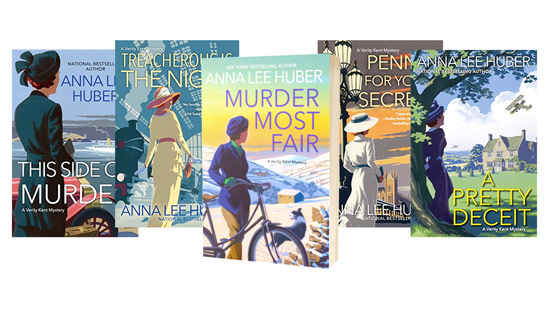
To help keep this site running: Willow and Thatch may receive a commission when you click on any of the links on our site and make a purchase after doing so.
The hallmark of the Verity Kent mystery series are its historical touchstones, which Huber uses to ground the series. Verity’s character is a member of intelligence gathering unit La Dame Blanche run by MI6. Huber fashioned a character inspired by the Duchess of Marlborough, the stunningly beautiful Gladys Spencer-Churchill, who once brought a pistol to a dinner party and threatened to shoot her husband with it. In Murder Most Fair (Kensington, August 2021), the narrative references The Spanish Flu, and the lingering effects of anti-German sentiment.
Murder Most Fair opens in November 1919. After the repeated national and personal traumas of The Great War, life almost feels normal again.
A fortnight by the seaside with her husband could almost convince Verity Kent that life has returned to the pleasant rhythms of long ago. Then Verity’s beloved Great-Aunt Ilse lands on their doorstep. After years in war-ravaged Germany, Ilse has returned to England to repair her fragile health—and to escape trouble. Someone has been sending her anonymous threats, and Verity’s Secret Service contacts from her time serving with intelligence unit La Dame Blanche, can only provide unsettling answers.
Even deep in the bucolic Yorkshire Dales, where she joins Verity’s family for the holidays, Ilse encounters difficulties. Normally peaceful neighbors are now hostile, seeking someone to blame for the losses they’ve endured. When Ilse’s maid is found dead, Verity must uncover whether this is anti-German hatred taken to murderous lengths, or whether there is a more personal motive at work. When German-speaking people are spotted on the property, the picture suddenly changes…
Could Verity’s shadowy nemesis, Lord Ardmore, be involved? And if so, how much closer to home will the blow land when he inevitably strikes again?
Murder Most Fair: A Verity Kent Mystery is available HERE.
Read the first chapter below, and see the end of the page for details about how to enter the giveaway.
Murder Most Fair: A Verity Kent Mystery by Anna Lee Huber
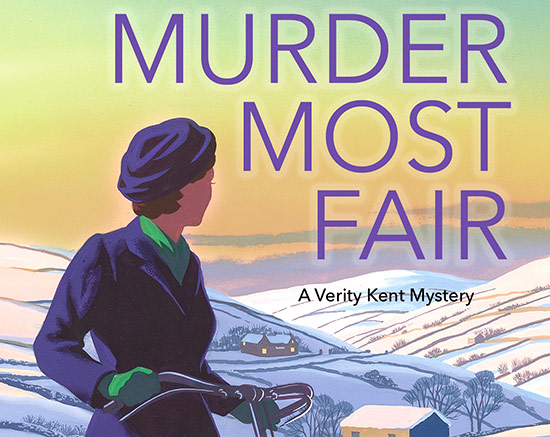
CHAPTER 1
Fair is foul, and foul is fair: Hover through the fog and filthy air. —William Shakespeare
November 1919
Seaford, Sussex
“Did you thrash the fellow?” my cousin Reg asked my husband eagerly.
“Nothing so brutal,” I protested, casting Reg a chiding look he couldn’t see, having lost his sight during the war, but could no doubt hear in my voice.
One corner of Sidney’s lips quirked upward as he slid a hand into the pocket of his gray worsted trousers. “No, I simply helped the chap back over the fence where he belonged.”
I turned to hand him a gin rickey, arching a single eyebrow wryly. “And by ‘helped’ you mean, ‘shoved him off a six-foot high wall.’ ”
Reg tipped his head back and laughed while Sidney shrugged, his amused gaze lingering on me as he took a sip of his drink. The ice clinked against the glass.
“Well, the photographer was trespassing, wasn’t he?” my friend Daphne countered from her perch beside Reg, whose side she hadn’t strayed far from in the past fortnight. She fluffed her blond bob with one hand. “He was certainly up to no good. Probably after some scurrilous pictures he could sell to the papers.”
I appreciated her outrage on our behalf, something that brought color into her cheeks and a sparkle into her blue eyes.
Not that Reg could see it. Though he didn’t seem averse to her company. At least, not after I explained to her that he was merely blind, not a doddering old fool. Kindhearted Daphne had meant well, even if at times she was a bit thick. In this case she’d made the same mistake as much of society, including my aunt, in thinking that blind meant incapable and inept. Reg might have lost the use of his eyes, but his mind and wit were still as sharp as ever, and Daphne had swiftly remedied her error.
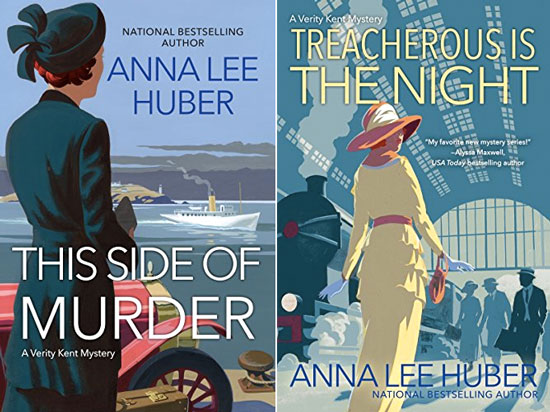
For my part, I was pleased to see my cousin looking so merry. Escaping from his overbearing mother and the ever-present troubles at his estate, Littlemote House, had done wonders for his spirits. I suspected the fact that—Daphne’s momentary blunder aside—everyone here treating him like he had a brain and a working set of limbs also helped.
My brilliant friend George Bentnick, who’d worked as a codebreaker during the war, reclined in a chair across the terrace of our cottage. The curls of his black hair ruffled in the evening breeze as he took a drag from his cigarette before turning to blow a long plume of smoke out into the garden. But I hadn’t failed to note the smirk stretching his lips.
“And just what do you find so amusing?” I asked as I draped myself over one of our lounge chairs, making certain the ends of the georgette silk scarf draped around my neck weren’t caught behind me. I arranged the skirts of my aubergine gown so that only my ankles peeked out.
“That photographer’s folly. What did he expect would happen when he scaled the fence of dashing war hero Sidney Kent and his beautiful and intrepid wife, Verity?” George questioned, quoting almost verbatim the description so often ascribed to us in the press. He scoffed, lifting his glass. “Kent certainly wasn’t going to invite him in to tea.”
“You underestimate me, Bentnick,” Sidney replied. “Perhaps next time I’ll do that very thing.”
“Oh, but surely there won’t be a next time,” Daphne leaned forward to protest.
This comment was met by four silent looks of disbelief. In my experience, photographers and newspapermen were not so easily deterred. Not when their quarry was guaranteed to sell papers and gossip rags. I supposed it was our own fault for remaining in the limelight for solving murders. Otherwise, our celebrity would have already dimmed five months after Sidney’s celebrated return after the fifteen months he had been believed to be dead, and the revelation of the traitors I’d helped him unmask.
In any case, I was tired of discussing the incident with the photographer. I tipped my head back to admire the streaks of red, mauve, and golden orange painting the sky, and providing a stiff competition to the leaves still clinging to our maple and black poplar trees for the most brilliant prospect. At least, temporarily. I wrapped my juniper-green woolen jumper tighter around me and breathed deeply of the air tinted with the smoke from the hearths burning inside, the earthy aroma of autumn decay, and a faint tinge of saltiness from the sea a short distance away. The breeze sawed gently through the trees overhead, rustling the leaves like castanets, and I allowed my eyes to drift shut. The evening was a lovely one, especially for mid-November.
Certainly lovelier than the evenings I’d spent at our cottage during the four long years of the war. Just a little over a year earlier, nature’s chorus before sunset—no matter how sweet the sound—would merely have been a prelude to the nightly growls and grumbles of the guns echoing across the Channel from the Western Front some seventy miles away. This was why the few times I’d retreated here I hadn’t remained more than a handful of days. Knowing Sidney was over there, his section of the trenches even at that moment perhaps being shelled and fired upon… It was too wrenching to not only be intellectually aware of the danger he was in, but also audibly reminded of it.
Even the relative peace of daylight had been periodically shattered by the sounds of gunfire and explosions from one of the military camps nearby, the gentle scents of honeysuckle and sweetbriar soured by the drifting stench of gunpowder or some other noxious fume from their training exercises.
A distinctive metallic kak-kak cry filled the air, and I opened my eyes to scowl at the black-winged menace landing on the gable of the cottage roof. “I thought Harley was going to take care of that jackdaw,” I grumbled to Sidney, doubting I was the only one who found the bird’s calls unsettlingly reminiscent of a Vickers machine gun.
“I’m afraid that’s my fault,” a deep voice admitted from over my shoulder.
I turned to find Max Westfield, the Earl of Ryde, grinning sheepishly down at me. His dark blond hair proved to be in need of a haircut, curling upward against the back of his collar.
“One of the tires on my Rolls went flat, and I asked him to change it,” he explained. “And then he uncovered an issue with the axle.”
I couldn’t help but soften at this news. Harley was a wonder with motorcars. Along with his duties as a man-of-all-work here at the cottage, he also repaired motorcars for the local village and its sharp influx of visitors in the summer months. Given the option between catching a jackdaw and tinkering with a motorcar as fine as Max’s pale yellow Rolls-Royce, there was no question what would take precedence. And given the fact that Max was our guest, I couldn’t begrudge Harley the choice he’d made.
“Is that where you’ve been?” I teased him, having wondered where he’d disappeared to for half the afternoon, but having been too lazy to bestir myself to find out.
“Did it happen when we were over at Pevensey?” Sidney queried with a frown. “I noticed there were a number of ruts in that road that needed to be repaired.”
“More than likely.” Max turned toward the drinks trolley, which had been wheeled out onto the terrace. “But then the maintenance of little-used rural roads has hardly been a priority these past five years.”
Our visit to Pevensey Castle, the site of one of the Romans’ Saxon shore forts built to defend Britain from invaders, had been less of a holiday—though we had taken a picnic with us— and more of a matter of unfinished business. A month prior, a letter written by Max’s late father had sent us off on a sort of Romano-British treasure hunt in search of what we’d thought was proof he’d held of the infamous Lord Ardmore’s guilt. One of the clues had been hidden at Pevensey, but we’d been able to sidestep it and skip to the last site. But we hadn’t figured out the purpose of the key he had also left his son, so we’d decided it would be best to search Pevensey for it. However, our visit had been disappointing in that regard. We’d found the clue that would have led us to Littlemote House and the deadly concealed treasure we’d uncovered there, but we still had no idea what the key was meant for.
Part of me was worried whatever the key unlocked had already fallen into the hands of Lord Ardmore. Ardmore had all but openly admitted he was responsible for the deaths of more than half a dozen people, and had implicated himself in a number of treasonous proceedings. He had proven himself wily, cunning, ruthless, and remorseless. But his somewhat shadowy position with Naval Intelligence and his highly placed friends made him untouchable until we possessed the definitive proof required to bring him down.
Proof that was supposed to lie at the end of the late Lord Ryde’s infuriating treasure hunt. Instead, we’d merely found ourselves with more disquieting questions. For Max even more than the rest of us. Though he presented an unruffled exterior, I could tell he was more unsettled than he wished to appear. When he lifted his drink to his lips, downing the contents in one long swallow before pouring himself another glass, I was even more convinced of it.
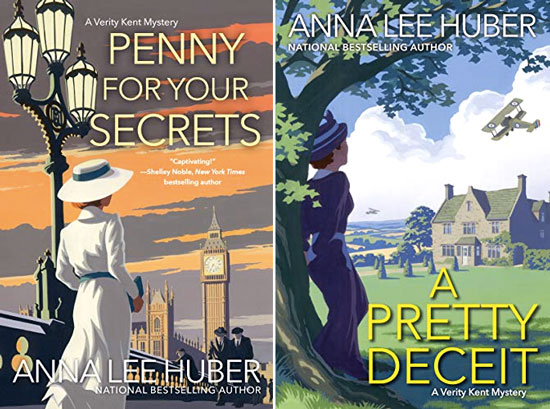
I wanted to say something to reassure him, to promise him we would figure out what his father’s key unlocked, to vow that we would find the proof we needed to stop Ardmore and avenge his father’s death. But not everyone on the terrace was privy to the knowledge of our investigation. Besides, I knew that wasn’t what truly disturbed him. It was his father’s culpability in Ardmore’s Zebrina plot, which had enabled the devious lord to smuggle an unknown quantity of the poisonous gas phosgene out of Britain to an unspecified destination—possibly somewhere in Ireland. The late Lord Ryde’s missives from beyond the grave had tried to downplay his role, to deny any knowledge of the Zebrina’s true cargo and Ardmore’s intentions for it, but I knew Max must hold the same doubts I did about the level of his father’s ignorance.
So in the end I remained silent, though I couldn’t help monitoring him from the corner of my eye with growing concern. He took a deep drink from his second glass of scotch, but rather than refill it, he crossed the terrace to sink into the vacant chair across the table from Reg.
“What have I missed?” he asked with forced cheer. “Are there any grand plans for this evening? It is our last night here, after all.”
“Aye, Ver,” Reg chimed in. “What have you got planned for us? Another cribbage tournament? Some nocturnal sea bathing? A spot of snipe hunting?” This last was uttered with a particularly impish grin, poking fun at me for the time Reg and our older brothers had convinced me and my younger brother, Tim, to sneak out of the nursery after dark to join them on a snipe hunt. Of course, had we realized the snipe we were hunting was mythical, and that the pillowcases they’d told us to bring to capture the bird were actually going to be used on us, Tim and I wouldn’t have been so eager to tag along.
“Are you sure hunting is the best idea?” Daphne voiced in concern, artlessly unaware he was teasing me.
“He jests,” I assured her.
“Do I?” he challenged, the natural lines and tiny scars near the corners of his eyes crinkling.
Max chuckled into his drink, and a glance at Sidney and George told me they were also familiar with the general joke.
“Yes, unless you intend to be the hunter strung up in a tree with a pillowcase over your head this time,” I replied pointedly before taking a sip of my gin rickey. “That wasn’t my idea,” Reg replied as he echoed the others’ laughter. All save Daphne, that is, who merely frowned, either in confusion or disapproval.
“No, it was undoubtedly Thomas.” His older brother had always been the most domineering. “Or Freddy,” I conceded, for my oldest brother had possessed a reckless and impulsive streak. “But you were also content to leave us there all night at their urging,” I muttered wryly, unwilling to let him off the hook as I recalled the fear I’d felt and the chill of that autumn evening, which had made me shiver in my thin coat. Though even as I’d listened to Tim’s whimpers, I’d refused to cry, determined not to give the older boys the satisfaction.
“Only because I knew Rob would return to release you.” A smile still curled his lips, showing he was far from chastened.
“Yes, Rob always looked out for those who were younger and weaker.” A sharp pain lanced my heart as thoughts of my second-oldest brother tinted the memory with sadness. He had always been the best of us, and when his aeroplane was shot down over France in July 1915, he’d taken a piece of me with him. That I still hadn’t reconciled myself to his loss even four years later simply made matters worse.
I drained my glass of its cool libation, resolutely pushing back the other memories battering at the door to my consciousness. When I opened my eyes, I found my husband watching me from his position leaning against the stone balustrade. It was obvious he knew where my thoughts had strayed, but I knew he wouldn’t say anything. Not now anyway. Not until we were alone. And there was time enough to distract him from doing that.
“No snipe hunting,” I declared as I set my glass on the table nearby. “And I suspect another cribbage tournament would only result in Reg routing us all again.”
Reg’s teeth flashed in a cocksure grin.
I had happened to stumble across a deck of Braille playing cards in a specialty shop I’d visited in London and brought them to the cottage. Reg had initially struggled to adapt to them, but with Daphne’s assistance he had quickly acquired proficiency with them and sightless game play. This did not surprise me in the least. Reg had always possessed a quick mind and a dogged determination. Now, a fortnight after his arrival in Seaford, he was trouncing us all, with the possible exception of George, whose mathematical genius always made games of chance more interesting.
“Nocturnal sea bathing, then?” Reg persisted merrily.
Sidney straightened, crossing closer to the rest of us. “Not this evening. Not with those storms that hovered over the Channel earlier today. The water will be too choppy.”
“Perhaps Verity means to surprise us,” Max chimed in to say, possibly hoping to save me from Reg’s further harassment. But he looked to me with the same enthusiasm.
Given the reason behind my and Sidney’s retreat from London, and our decision to host this extended house party, we’d gone to great lengths to entertain and distract ourselves and our friends. After all, the one-year anniversary of the armistice ending the war had passed less than a fortnight earlier, and each of us had struggled with the tides of our own grief and loss. We had each lost loved ones, each sacrificed for the war effort— some more than others. While Sidney, Max, and Reg had served as officers in the trenches of the Western Front, George, Daphne, and I had worked for the British Intelligence Services. George had been a brilliant codebreaker for Naval Intelligence, while Daphne worked in the Registry for MI5 counterintelligence, and I had operated in a number of capacities for the Secret Service, even spending time behind enemy lines in German-occupied Belgium and France, liaising with our intelligence-gathering networks there.
Given our collective memories, our collective desire to escape the pomp and circumstance being orchestrated in London to mark the occasion, I’d had my work cut out for me. Though I’d known it was foolish to hope to pass that day and those around it without confronting some dark emotions and painful recollections, I’d done my best to strategically sprinkle our itinerary with welcome distractions. Some mundane and some outrageous. Some peaceful and some dynamic. Each of us had also done our fair share of strolling alone through our gardens or along the rocky beach. Each of us coming to terms with what had passed, our own part in it, and the fortune of our survival to see this day when so many others had not.
Murder Most Fair: A Verity Kent Mystery is available HERE.
 To enter the GIVEAWAY: The giveaway opens on August 29, 2021 and runs through September 6. Open to US only, age 18 and older. Enter on the Willow and Thatch Facebook page. Winner announced on Facebook September 7. (If you don’t have a Facebook account, please email us when the giveaway is live, with a note saying why you’d like to win.)
To enter the GIVEAWAY: The giveaway opens on August 29, 2021 and runs through September 6. Open to US only, age 18 and older. Enter on the Willow and Thatch Facebook page. Winner announced on Facebook September 7. (If you don’t have a Facebook account, please email us when the giveaway is live, with a note saying why you’d like to win.)
1 Willow and Thatch reader will win all 5 books in Anna Lee Huber’s Verity Kent Mystery series, and a group of Yorkshire teas.
Books in the Verity Kent Mystery series included in the giveaway: The Great War is over, but in this captivating new series from award-winning author Anna Lee Huber, one young widow discovers the real intrigue has only just begun. Books 1-5 include: This Side of Murder, Treacherous is the Night, Penny For Your Secrets, A Pretty Deceit, and Murder Most Fair.
Yorkshire Teas included in the giveaway: A proper brew – pure and simple. Taylors of Harrogate pays fair prices for really good tea from farms in Africa and India, to make a lovely blend that’s big on flavor, seriously refreshing and kind to the people who grow it. The family business was founded in 1886 in Harrogate, one of the nicest towns in Yorkshire. Winner will receive: Taylors of Harrogate Yorkshire Red Loose Leaf, 8.8 Ounce, Taylors of Harrogate Yorkshire Gold, 160 Teabags, and Taylors of Harrogate Yorkshire Red, 160 Teabags.
Anna Lee Huber is the USA Today bestselling and Daphne award-winning author of the Lady Darby Mysteries, the Verity Kent Mysteries, and the Gothic Myths series, as well as the anthology The Deadly Hours. She is a summa cum laude graduate of Lipscomb University in Nashville, Tennessee, where she majored in music and minored in psychology. She currently resides in Indiana with her family and is hard at work on her next novel. Visit her online at annaleehuber.com
If you enjoyed this post, wander over to The Period Films List. You’ll especially like the Interwar Era list.

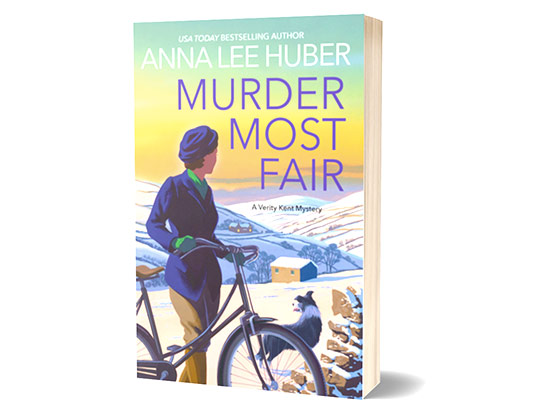
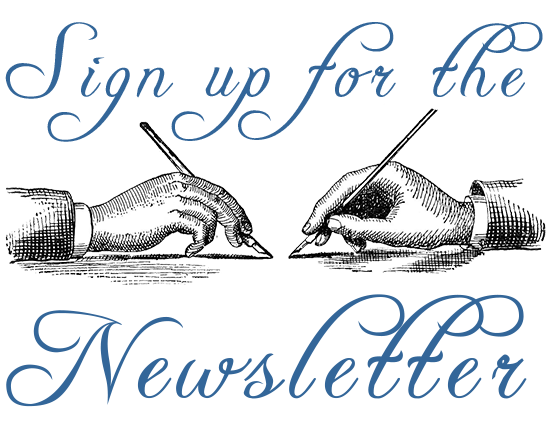
Cynthia Norlin
September 1, 2021 at 6:49 pm (4 years ago)#Giveaway
Willow and Thatch
September 2, 2021 at 9:00 am (4 years ago)Be sure to enter on our Facebook page at https://www.facebook.com/perioddramas or by email. Commenting here doesn’t constitute an entry. Thanks!
Karen Lynn Hackney
September 1, 2021 at 12:20 am (4 years ago)This would be a wonderful prize package to win.
Willow and Thatch
September 2, 2021 at 9:01 am (4 years ago)Be sure to enter on our Facebook page at https://www.facebook.com/perioddramas or by email. Commenting here doesn’t constitute an entry. Thanks!